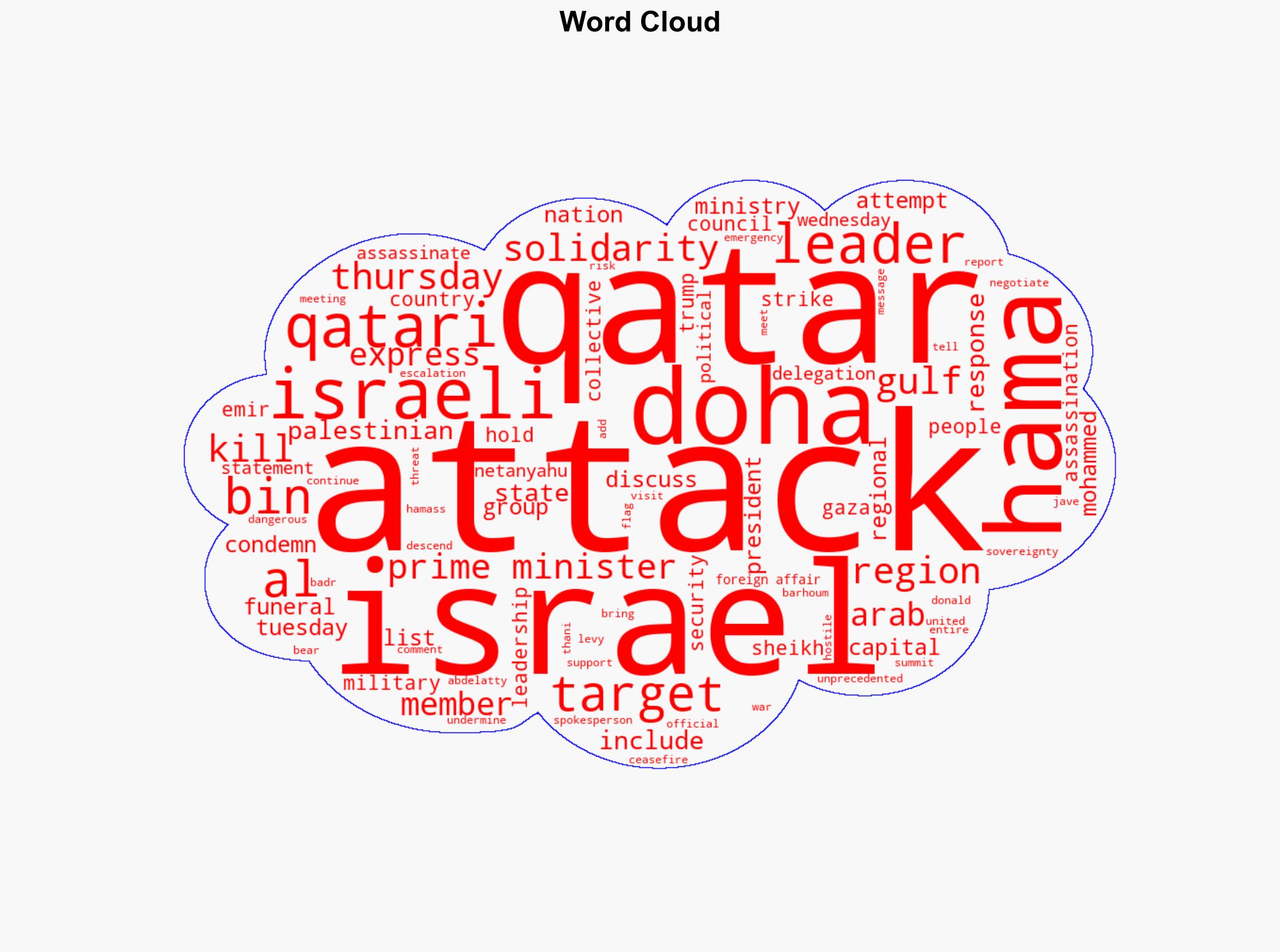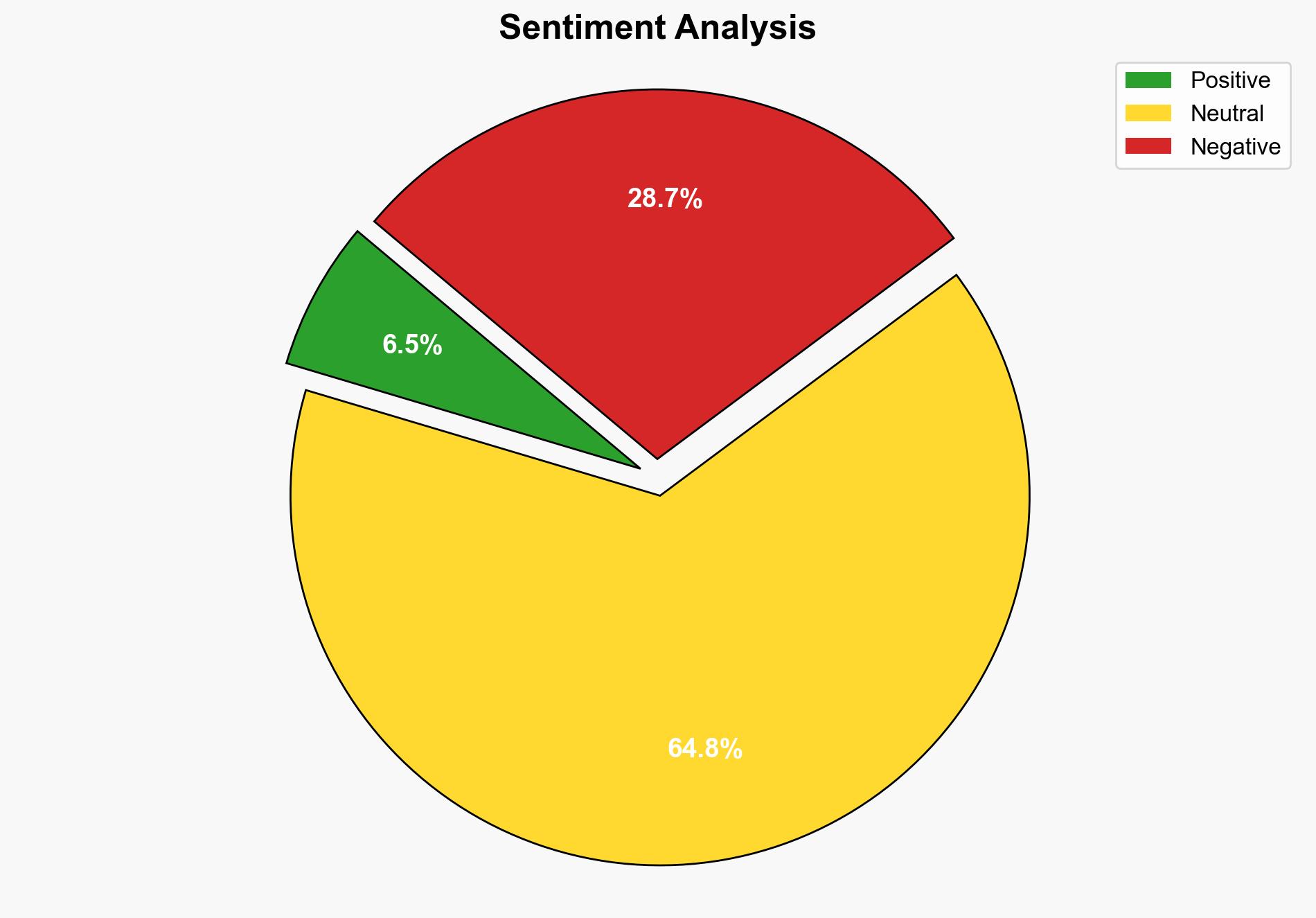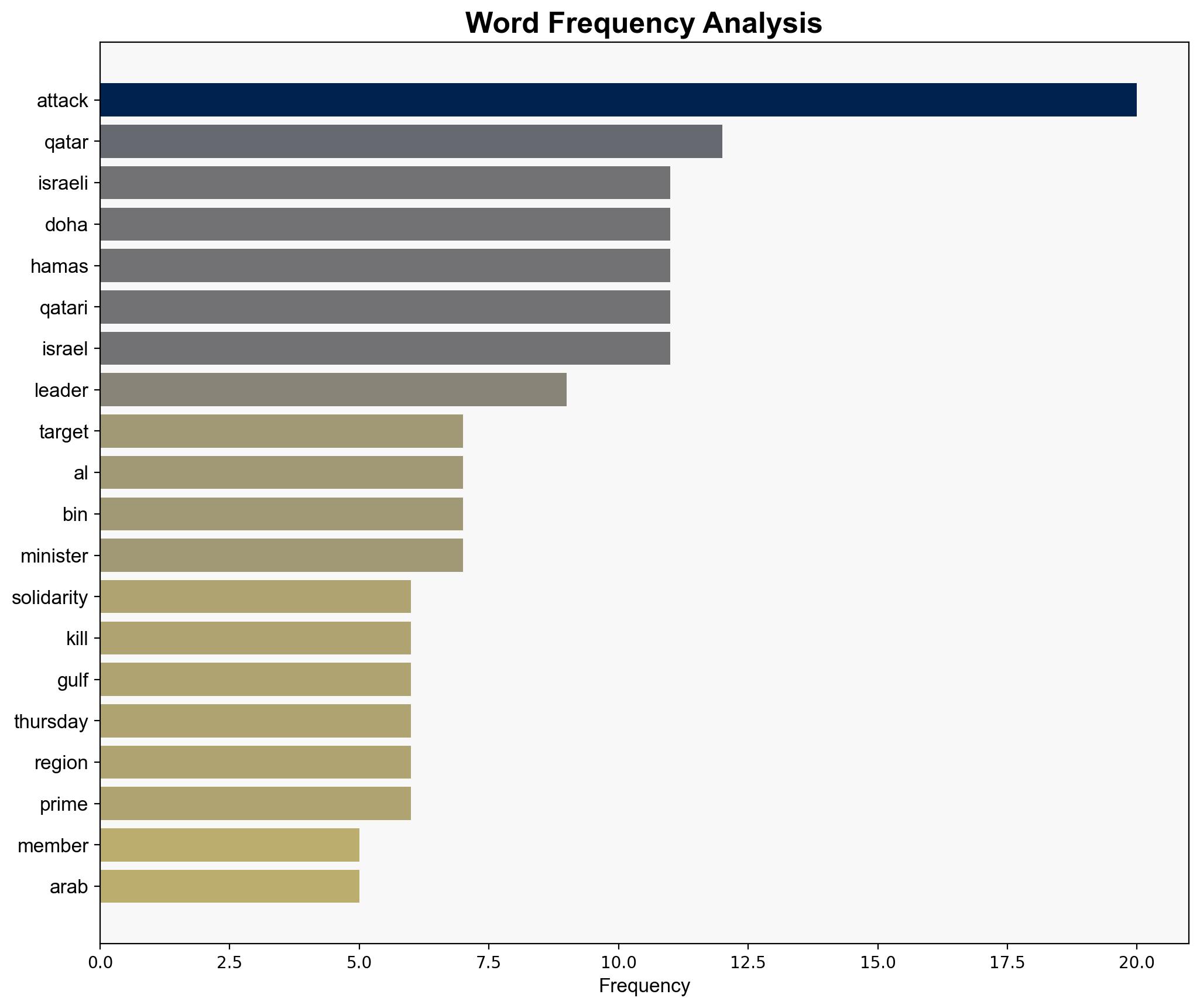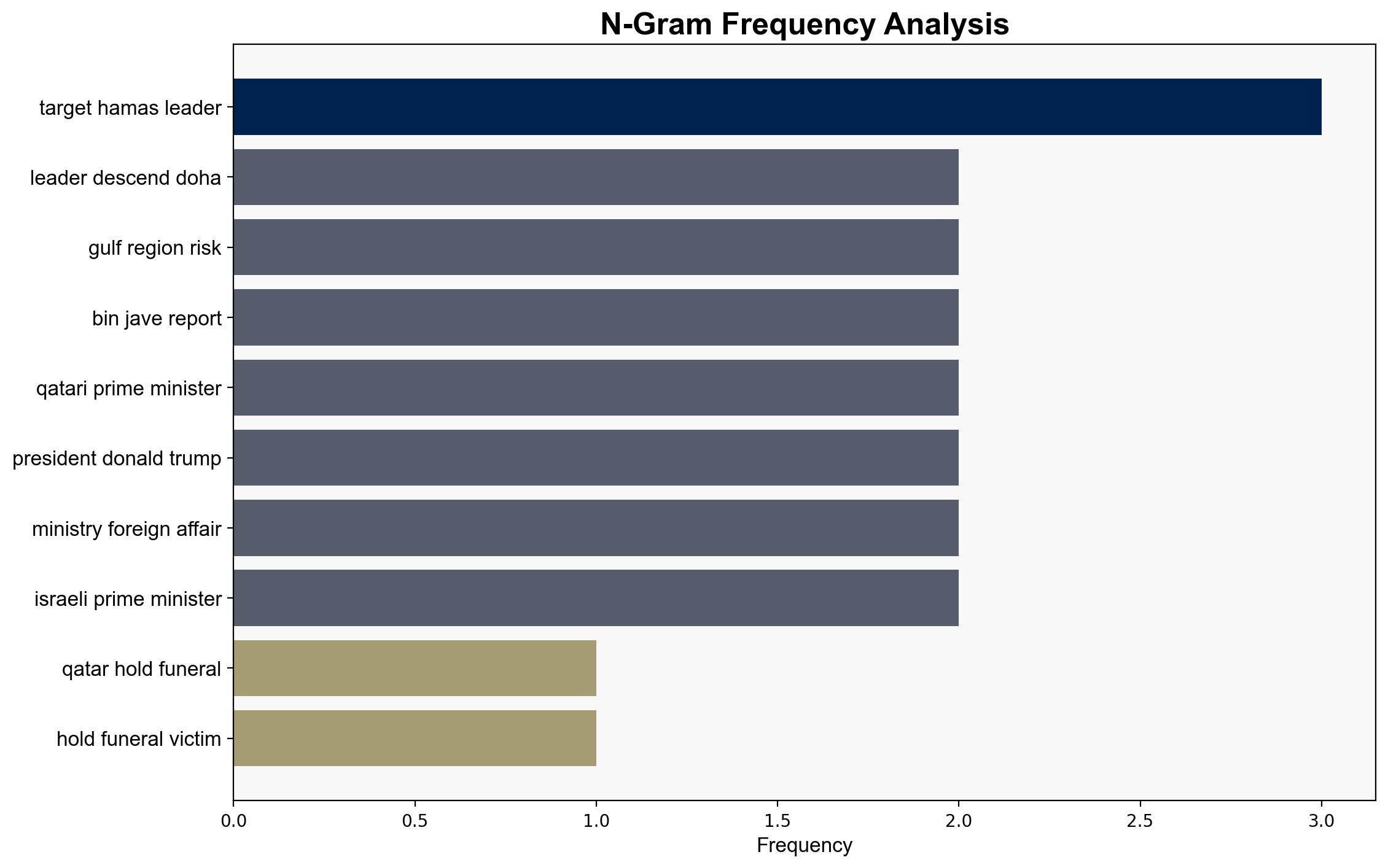Qatar holds funeral for victims of Israeli attack amid regional solidarity – Al Jazeera English
Published on: 2025-09-11
Intelligence Report: Qatar holds funeral for victims of Israeli attack amid regional solidarity – Al Jazeera English
1. BLUF (Bottom Line Up Front)
The most supported hypothesis is that Qatar is leveraging regional solidarity to strengthen its geopolitical position and counterbalance Israeli influence. Confidence level: Moderate. Recommended action: Monitor developments at the upcoming Arab-Islamic summit for shifts in regional alliances and potential escalation.
2. Competing Hypotheses
1. **Hypothesis A**: Qatar is using the funeral and regional solidarity to consolidate its leadership role in the Gulf and Arab world, positioning itself as a mediator and protector of Palestinian interests.
– **Supporting Evidence**: The presence of multiple Arab leaders in Doha, the planned emergency summit, and Qatar’s public stance against the Israeli attack suggest a strategic move to unify regional powers under its leadership.
2. **Hypothesis B**: The regional solidarity and funeral are primarily symbolic gestures, with limited long-term impact on geopolitical dynamics. The focus is on immediate humanitarian and diplomatic responses rather than strategic shifts.
– **Supporting Evidence**: The lack of concrete actions beyond expressions of solidarity and the absence of significant military or economic countermeasures indicate a primarily symbolic response.
Using ACH 2.0, Hypothesis A is better supported due to the active engagement of regional leaders and Qatar’s initiative in convening a summit, suggesting a strategic intent beyond mere symbolism.
3. Key Assumptions and Red Flags
– **Assumptions**: It is assumed that regional leaders’ presence in Doha signifies genuine support for Qatar’s leadership. Additionally, it is presumed that the summit will lead to actionable outcomes.
– **Red Flags**: The possibility of internal dissent within the Gulf Cooperation Council (GCC) or differing agendas among Arab states could undermine collective action. The lack of direct military or economic responses to the Israeli attack is a potential indicator of limited commitment.
4. Implications and Strategic Risks
– **Geopolitical Risks**: Increased tensions between Israel and Arab states could lead to further regional instability. Qatar’s actions may provoke Israeli countermeasures or influence U.S. foreign policy in the region.
– **Economic Risks**: Prolonged instability could impact energy markets, particularly if tensions affect oil and gas exports from the Gulf.
– **Psychological Risks**: The narrative of regional solidarity may bolster Palestinian morale but could also escalate anti-Israel sentiments, leading to potential unrest.
5. Recommendations and Outlook
- Monitor the outcomes of the Arab-Islamic summit for signs of a coordinated regional strategy or shifts in alliances.
- Engage in diplomatic channels to de-escalate tensions and promote dialogue between Israel and Arab states.
- Scenario Projections:
- Best Case: The summit leads to a unified regional approach that pressures Israel diplomatically without escalating conflict.
- Worst Case: Regional tensions escalate into broader conflict, disrupting energy markets and regional stability.
- Most Likely: Symbolic gestures continue with limited strategic shifts, maintaining the status quo.
6. Key Individuals and Entities
– Sheikh Tamim bin Hamad Al Thani
– Sheikh Mohammed bin Zayed Al Nahyan
– Shehbaz Sharif
– Mohammed bin Salman
– Abdel Fattah el-Sisi
– Daniel Levy
7. Thematic Tags
national security threats, regional focus, geopolitical strategy, Middle East diplomacy





